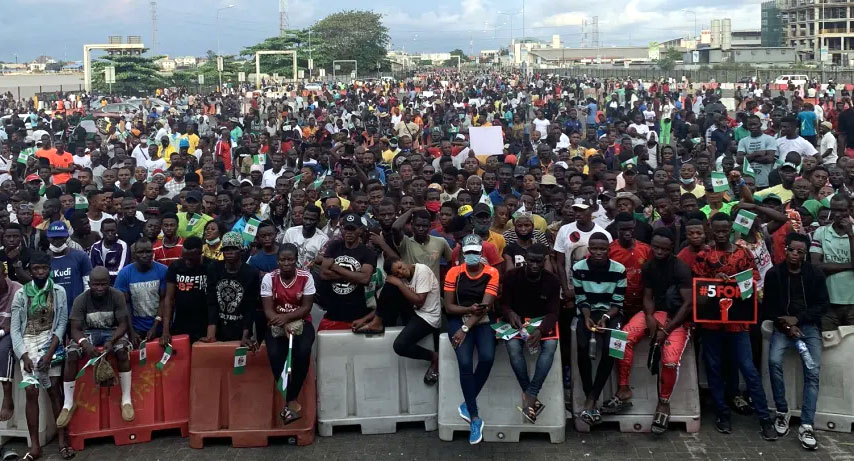
Who belongs to “us”? Examining discourse and resistance to social media regulation
Prompt: Belonging – i.e. how do audiences create / foster / foreclose senses of belonging? how do we as researchers ‘belong’ to an audience? how do audiences correlate with ‘places’? (e.g. jingles, talking heads, dialects, …)
The following is a response to the Media and Place cluster’s monthly creative prompts, where the March prompt was Belonging.
For my research, I examined how Twitter users constitute themselves into what Bruns and Burgess call ad-hoc publics to resist the regulation of social media in Nigeria. In doing this, I found that Twitter users assigned identity markers to everyone involved in the debate, deploying the “us vs them” narrative to oppose regulation. They constructed “us” as everyone opposed to the regulatory attempt and “them” as anyone viewed as being in support of regulation, e.g., the government. The tool of opposition was the #SayNoToSocialMediaBill tag. This hashtag was later used in conjunction with the #EndSARS hashtag when some leaders in Northern Nigeria called for social media regulation in the aftermath of the #EndSARS 2020 protest.
My research then considered the spatiotemporal setting (discourse in Nigeria between 2019 and 2020 captured in the #SayNoToSocialMediaBill corpus), participants (Twitters users – representing social media users who deploy their identity as citizens, and the government, which broadly includes national lawmakers and members of the federal executive branch), action engaged in (opposition and resistance to social media regulation), and the social and political conditions and consequences (the power dynamics at play between government and social media users).
The research also underscored key contextual knowledge that shapes how resistance to social media regulation in Nigeria is constructed in discourse. For instance, in terms of knowledge, the hashtag users know that they are citizens of Nigeria who use social media. They know that the government desires to regulate social media, has attempted it in the past, and can have its ways, since, as government, it has the power to make regulations and enforce them. They know that government has an interest in constraining open public dialogue and that strict regulations exist for other media forms such as broadcasting. Post-EndSARS, they know that the government is seeking ways to limit the use of social media for the expression of dissent. Hence, they see social media as perhaps the last free space that they have and are willing to resist regulatory attempts. This collection of knowledge then influences their interpretations of the regulatory move in Nigeria and shapes how they construct identities and a sense of belonging, especially amongst themselves.
To illustrate this point, I refer to one observation in the dataset. This is the manner in which the hashtag users constructed an identity of themselves (“us”) as “Nigerian youths” who were opposed to those in the older generation (“them”). They described this older generation broadly speaking as the government or as people in their parents’ generation who had become too docile and accepting of perceived government overreach. But after leaders in Northern Nigeria called for social media regulation, the hashtag users then saw themselves as “Southern Nigerian youths” (the new “us”) who were different from “Northern (Arewa) youth” (the new “them”). They called on these Northern youths to oppose their regional leaders and the government (the original “them”) – making this seem like a precondition for the acceptance of Northern youths into the original “us”, which is the broader family of Nigerian youths.
In this way, the hashtag users were able to draw and redraw borders and identity markers to determine who belongs in what group as part of the battle over social control and power, mirrored in the formation of discourse on Twitter.
